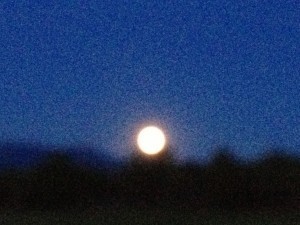Alison McGhee's Blog, page 20
January 8, 2014
Ask
 Someone dear to me gave me an unusual gift for Christmas. It was a card in the shape of a doorway, which opened to reveal, in this person’s angular scrawl, the following.
Someone dear to me gave me an unusual gift for Christmas. It was a card in the shape of a doorway, which opened to reveal, in this person’s angular scrawl, the following.
Question:
Answer:
“What in the world is this?” I said.
“It’s your question and my answer,” he said. “You ask me any question you want, and I have to answer it.”
“Any question?”
“Any question in the world,” he said. “And I will answer completely and honestly.”
* * *
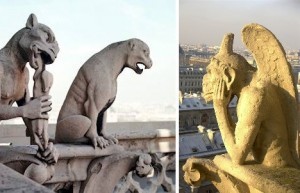 It’s been two weeks now and I still haven’t asked the question because I’m still trying to think of one. And not because I can’t think of one, but because I can think of a thousand.
It’s been two weeks now and I still haven’t asked the question because I’m still trying to think of one. And not because I can’t think of one, but because I can think of a thousand.
What do you love? What makes you happy? Where do you see yourself fifty years from now? What’s your biggest fear? What’s your wildest dream?
I’ve known this person a long time, so from longevity alone you might think I know him well. Maybe I do. But maybe I don’t. He is reserved. He goes his own way. He keeps his own counsel. There are times when I look at him and wonder, fiercely, what he’s thinking about.
What have you thought about the most, thought about the hardest, in your life?
That would be a good question, but it’s not the right question. It’s not the best question.
* * *
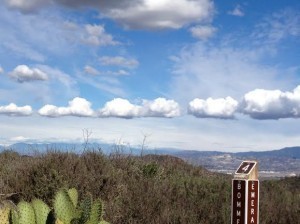 Some questions have to do with me more than the person who gave me this gift. They are questions about the two of us together, about things that happened to us or around us or between us in the past. The answer to one of these questions might give me a deeper sense of how he thinks of me. Or what he thinks of me. Or how some of the things I did long ago have stayed with him, in a bad or a good way.
Some questions have to do with me more than the person who gave me this gift. They are questions about the two of us together, about things that happened to us or around us or between us in the past. The answer to one of these questions might give me a deeper sense of how he thinks of me. Or what he thinks of me. Or how some of the things I did long ago have stayed with him, in a bad or a good way.
But none of those questions is one I will ask, because the answer would have to do with me and not him. A question born of insecurity or self-wonderment is not the right question.
* * *
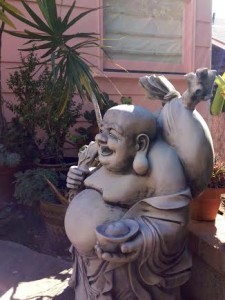 I once belonged to a group of people, eight or ten of us, who met once every couple of weeks for a few months. None of us knew each other; we met as strangers. We put on name tags at each meeting and sat in a circle of chairs. Every meeting was the same: one of us read a question aloud while the rest of us listened.
I once belonged to a group of people, eight or ten of us, who met once every couple of weeks for a few months. None of us knew each other; we met as strangers. We put on name tags at each meeting and sat in a circle of chairs. Every meeting was the same: one of us read a question aloud while the rest of us listened.
Then we sat together and thought. You could take as much time as you wanted to think about the question because there was no requirement beyond thinking. If, at some point during the hour, you wanted to answer the question, or talk about it in a non-answery sort of way, you could do so.
There was no set order to responses. Most of the time, most of the people in the group spoke. But not always.
What was so unusual about this group was that there was no conversation beyond listening. We sat and listened as each person spoke, sometimes haltingly, sometimes at length, sometimes with tears or laughter. Then we resumed our shared silence. Conversation –that give and take, the familiar nodding and murmurs of assent or comfort or I get what you’re saying sounds– was not allowed. The focus was on listening, deep, absorbed listening.
I think about that group, and what I learned from it about how to listen, and how to see, and how to understand other people, even strangers I don’t know, every day.
* * *
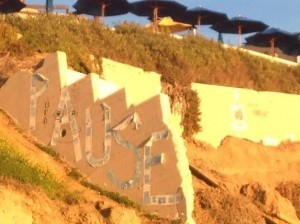 The right question would be a question whose answer would have nothing to do with me and everything to do with him. An answer that I would listen to, in silence, and absorb.
The right question would be a question whose answer would have nothing to do with me and everything to do with him. An answer that I would listen to, in silence, and absorb.
The best question might feel, to him, like the tagline to one of my favorite movies: Everyone wants to be found.
And now I’m thinking of a beautiful poem that I read a few years ago in the middle of winter, before the sun was up. Here it is.
With that Moon Language
- Hafiz*
Admit something:
Everyone you see, you say to them, “Love me.”
Of course you do not do this out loud; otherwise,
someone would call the cops.
Still, though, think about this, this great pull in us
to connect.
Why not become the one who lives with a full moon
in each eye that is always saying,
with that sweet moon language
what every other eye in this world is dying to hear?
*(translated by Daniel Ladinsky)
January 4, 2014
Poem of the Week, by Wallace Stevens
The Snow Man, by Wallace Stevens
One must have a mind of winter
To regard the frost and the boughs
Of the pine-trees crusted with snow;
And have been cold a long time
To behold the junipers shagged with ice,
The spruces rough in the distant glitter
Of the January sun; and not to think
Of any misery in the sound of the wind,
In the sound of a few leaves,
Which is the sound of the land
Full of the same wind
That is blowing in the same bare place
For the listener, who listens in the snow,
And, nothing himself, beholds
Nothing that is not there and the nothing that is.

–
For more information on Wallace Stevens, please click here:
http://www.poetryfoundation.org/bio/wallace-stevens
–
My blog: alisonmcghee.com/blog
My Facebook page: http://www.facebook.com/home.php?#!/pages/Alison-McGhee/119862491361265?ref=ts
December 28, 2013
Poem of the Week, by Nathaniel Perry
- Nathaniel Perry
Do you remember when the sky burned down
its wick of light as an April cold came on
the evening of your fifth day in the world?
Of course you don’t, you couldn’t even hold
your head up yet, much less begin to think
to hold one evening’s ash inside, like a drink
held up to the sun, trapping and clutching the light.
But I wonder sometimes if within the slighter
corners of your mind you’ve held a hint of it,
the light I saw beyond the trees which split
the view from our rented front porch, while you
slept, swaddled as if in song, through
the louder sleep of your mother beside you. Rache,
if you can find that evening, which is stationed
in my chest, inside you now, I swear it will
get you somewhere, across a field so filled
with snow the sky and ground are one, across
a field so bleached with drought the giant cross
of shadows from the pines is friction enough
to set the day on fire. You’ll come, rough
in your heart, to the edges of those fields and be lifted
just a fraction of an inch by the gift
of the sky’s old light in you. It will remind
you to invite yourself, the whole of your mind,
the whole history of your self along across
the grass. If you see yourself you can’t be lost;
though I may lose sight of you against the sky,
or in the vetch, in bloom, where the meadow rises.
–
For more information on Nathaniel Perry, please click here: http://www.kenyonreview.org/conversation/nathaniel-perry/
–
My blog: alisonmcghee.com/blog
My Facebook page: http://www.facebook.com/home.php?#!/pages/Alison-McGhee/119862491361265?ref=ts
December 21, 2013
Poem of the Week, by Marie Howe
- Marie Howe
Even if I don’t see it again—nor ever feel it
I know it is—and that if once it hailed me
it ever does—
And so it is myself I want to turn in that direction
not as towards a place, but it was a tilting
within myself,
as one turns a mirror to flash the light to where
it isn’t—I was blinded like that—and swam
in what shone at me
only able to endure it by being no one and so
specifically myself I thought I’d die
from being loved like that.
–
For more information on Marie Howe, please click here: http://www.mariehowe.com/
–
My blog: alisonmcghee.com/blog
My Facebook page: http://www.facebook.com/home.php?#!/pages/Alison-McGhee/119862491361265?ref=ts
December 15, 2013
Poem of the Week, by Martin Espada
- Martín Espada
At sixteen, I worked after high school hours
at a printing plant
that manufactured legal pads:
Yellow paper
stacked seven feet high
and leaning
as I slipped cardboard
between the pages,
then brushed red glue
up and down the stack.
No gloves: fingertips required
for the perfection of paper,
smoothing the exact rectangle.
Sluggish by 9 PM, the hands
would slide along suddenly sharp paper,
and gather slits thinner than the crevices
of the skin, hidden.
The glue would sting,
hands oozing
till both palms burned
at the punch clock.
Ten years later, in law school,
I knew that every legal pad
was glued with the sting of hidden cuts,
that every open law book
was a pair of hands
upturned and burning.
–
For more information on Martin Espada, please click here: http://martinespada.net/Poems.html
–
My blog: alisonmcghee.com/blog
My Facebook page: http://www.facebook.com/home.php?#!/pages/Alison-McGhee/119862491361265?ref=ts
December 7, 2013
Poem of the Week, by Brynn Saito
Trembling on the Brink of a Mesquite Tree
- Brynn Saito
And the Lord said Surprise me, so I moved to LA.
After packing my posters and scrubbing the bathroom and bidding goodbye
to the permanent circus, I drove through The South
with its womb-like weather, and I drove through the center
with its cross-hatched streams, and the century unspooled
like a wide, white road with lines for new writing
and the century unspooled like a spider’s insides
and the country was a cipher, so I voted my conscience.
And the country was a carton of twelve rotten eggs.
And the country was a savior—come deliver us from evil!—
and my car burned a scar across the back of an angel
and yes, I was afraid. No I’ve never gone hungry, but I’ve woken alone
with a ghost in my throat and I’ve been like the child
who’s sure she perceives some creature in the dark—
some night-breathing thing—and I know there is something I can almost see …
But the future’s a bright coin spinning in sunlight
so fast that it’s sparking a flame in the grass, and who knows
where they’ll find me—on which sunken highway?—so I’m writing this poem
to remember my name. And I’m writing this poem
to let something go, in the mode of surrender, since God
needs a ritual, like kissing needs another, or a knife needs the softness
of a melon in summer, and leaving New York is like leaving
the circus, and entering America is like entering a fortress,
flooded by soda and we float to the bars in our giggling terror
and driving from one shore across to another?
That’s one sign for freedom, one small stab at change,
so when the Lord said Surprise me, I moved to LA.
–
For more information on Brynn Saito, please click here:
http://brynnsaito.com/
–
My blog: alisonmcghee.com/blog
My Facebook page: http://www.facebook.com/home.php?#!/pages/Alison-McGhee/119862491361265?ref=ts
November 30, 2013
Poem of the Week, by Jeffrey Harrison
Our Other Sister
- Jeffrey Harrison
The cruelest thing I did to my younger sister
wasn’t shooting a homemade blowdart into her knee,
where it dangled for a breathless second
before dropping off, but telling her we had
another, older sister who’d gone away.
What my motives were I can’t recall: a whim,
or was it some need of mine to toy with loss,
to probe the ache of imaginary wounds?
But that first sentence was like a strand of DNA
that replicated itself in coiling lies
when my sister began asking her desperate questions.
I called our older sister Isabel
and gave her hazel eyes and long blonde hair.
I had her run away to California
where she took drugs and made hippie jewelry.
Before I knew it, she’d moved to Santa Fe
and opened a shop. She sent a postcard
every year or so, but she’d stopped calling.
I can still see my younger sister staring at me,
her eyes widening with desolation
then filling with tears. I can still remember
how thrilled and horrified I was
that something I’d just made up
had that kind of power, and I can still feel
the blowdart of remorse stabbing me in the heart
as I rushed to tell her none of it was true.
But it was too late. Our other sister
had already taken shape, and we could not
call her back from her life far away
or tell her how badly we missed her.
–
For more information on Jeffrey Harrison, please click here: http://www.poetryfoundation.org/bio/jeffrey-harrison
–
My Facebook page: http://www.facebook.com/home.php?#!/pages/Alison-McGhee/119862491361265?ref=ts
November 24, 2013
Poem of the Week, by Howard Cushman
- Stephen Cushman
We can’t all be
brightest in the sky
or the biggest guy
in outer space.
But I don’t envy
anybody’s place
or need to feel
I have no worth
because I’m far
from Orion’s heel.
My yellow-white
double star
delivers its light
to nearby Earth
in eleven years flat,
which is pretty fast,
but my other boast
is Helen: she
loved me most
of all her hounds,
and you can’t beat that.
So I, unsurpassed
in her esteem,
made no sounds
when secretly
they left for Troy.
He was the dream
igniting the dark
scarcity of joy.
How could I bark?

–
My Facebook page: http://www.facebook.com/home.php?#!/pages/Alison-McGhee/119862491361265?ref=ts
November 17, 2013
Skin remembers how
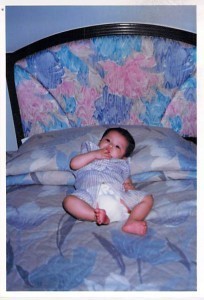 First touch, seventeen years ago. A hotel room in Hangzhou. 102 degree heat and a tiny baby in a striped split-pants outfit who has just been handed to you. Diaper rash. You take off her striped outfit and diaper and pull up your t-shirt and lay her down, stomach to stomach.
First touch, seventeen years ago. A hotel room in Hangzhou. 102 degree heat and a tiny baby in a striped split-pants outfit who has just been handed to you. Diaper rash. You take off her striped outfit and diaper and pull up your t-shirt and lay her down, stomach to stomach.
She sticks two fingers in her mouth and crinkles her dark eyes at you. You trace her sweaty little spine with one finger. Both of you are limp from the summer heat.
Hi, baby girl, you say.
Your skin and her skin, getting to know each other.
* * *
First kiss. The middle of the night. Rain drumming on a big tent in the woods by a river. Everyone asleep but you and the boy next to you. His hand silently smoothing your hair. The thrill of his skin-that-is-not-your-skin on yours. A quick smile the next morning, the brush of his fingers against yours under the picnic table.
* * *
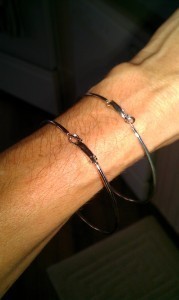 Your elderly friend. The first time he’s left the big city in 37 years, the first time he’s been on a plane in 40. The first time he’s seen your house, sat at your kitchen table. He’s telling you how his mother used to rub the skin off boiled beans. He shows you with his fingers, rubbing them against his thumb.
Your elderly friend. The first time he’s left the big city in 37 years, the first time he’s been on a plane in 40. The first time he’s seen your house, sat at your kitchen table. He’s telling you how his mother used to rub the skin off boiled beans. He shows you with his fingers, rubbing them against his thumb.
“Like that,” he says.
You look at him, your shy and quiet friend who has lived his entire life in the same house, the one he lived in with his parents until they died, and suddenly you wonder if he has ever, even once, held a girl’s hand.
You reach across the table and hold his hand.
“You are precious to me,” you say. “Do you know that?”
He bends his head and nods.
* * *
“I was born in a body entirely covered and held together with skin,” writes your student. “And when I grew, my skin grew with me.”
You read her words and skin strikes you, for the first time, as alive. Of course it’s alive, you think, it’s an organ. It’s the largest organ in the body. But why did you never think of it as alive until just now?
You look at your hands, typing these words. At the veins like noodles just below the surface. At the scabs and scars and freckles and lines, none of which were there when you were born. You think of everything –the blood and muscles and bone and hidden organs– that your skin is protecting right now. Equal parts strength and fragility.
* * *
Your boy texts you a photo of his new tattoo. It takes you a while to comprehend it. Then: Wow, you text back.
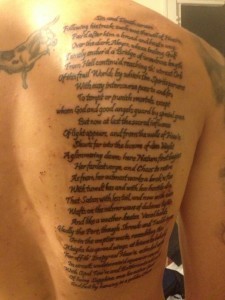 It’s from the last lines of Book One of Paradise Lost, he writes. The most beautiful book I’ve ever read.
It’s from the last lines of Book One of Paradise Lost, he writes. The most beautiful book I’ve ever read.
You imagine a long line of years stretching ahead of the skin that now holds his favorite words. You wonder how much it hurt, all those words, all those needles, all that ink.
The devil emerges from hell, he writes, and must pause to behold pure beauty for the first time.
You picture the scene, the devil, forced to stop and acknowledge the beauty of this world. You study the photo of your boy’s back and you remember it as it was the first time you saw him, when he was born. You carried him inside you while his skin was forming itself over that tiny, perfect body. You cried in fury and sorrow the first time a mosquito bit him. That first wound.
That is amazing, you message back. You amaze me.
Nothing for a few minutes. Then a small red heart appears on your screen.
* * *
Skin remembers how long the years grow
when skin is not touched, a gray tunnel
of singleness, feather lost from the tail
of a bird, swirling onto a step,
swept away by someone who never saw
it was a feather. Skin ate, walked,
slept by itself, knew how to raise a
see-you-later hand. But skin felt
it was never seen, never known as
a land on the map, nose like a city,
hip like a city, gleaming dome of the mosque
and the hundred corridors of cinnamon and rope.
Skin had hope, that’s what skin does.
Heals over the scarred place, makes a road.
Love means you breathe in two countries.
And skin remembers–silk, spiny grass,
deep in the pocket that is skin’s secret own.
Even now, when skin is not alone,
it remembers being alone and thanks something larger
that there are travelers, that people go places
larger than themselves.
(Two Countries, by Naomi Shihab Nye)
November 16, 2013
Poem of the Week, by Alden Nowlan
- Alden Nowlan
Five laths in a cotton dress
was christened Flossie
and learned how to cry,
her eyes like wet daisies
behind thick glasses.
She was six grades ahead of me
and wore bangs; the big boys
called her “The Martian,”
they snowballed her home,
splashed her with their bicycles,
left horse dung in her coat pockets.
She jerked when anyone spoke to her,
and when I was ten
I caught up with her one day
on the way home from school,
and said, Flossie I really like you
but don’t let the other kids know I told you,
they’d pick on me, but I do like you,
I really do, but don’t tell anybody.
And afterwards I was ashamed
for crying when she cried.
–
For more information on Alden Nowlan, please click here: http://www.poemhunter.com/alden-nowlan/biography/
–
My Facebook page: http://www.facebook.com/home.php?#!/pages/Alison-McGhee/119862491361265?ref=ts

